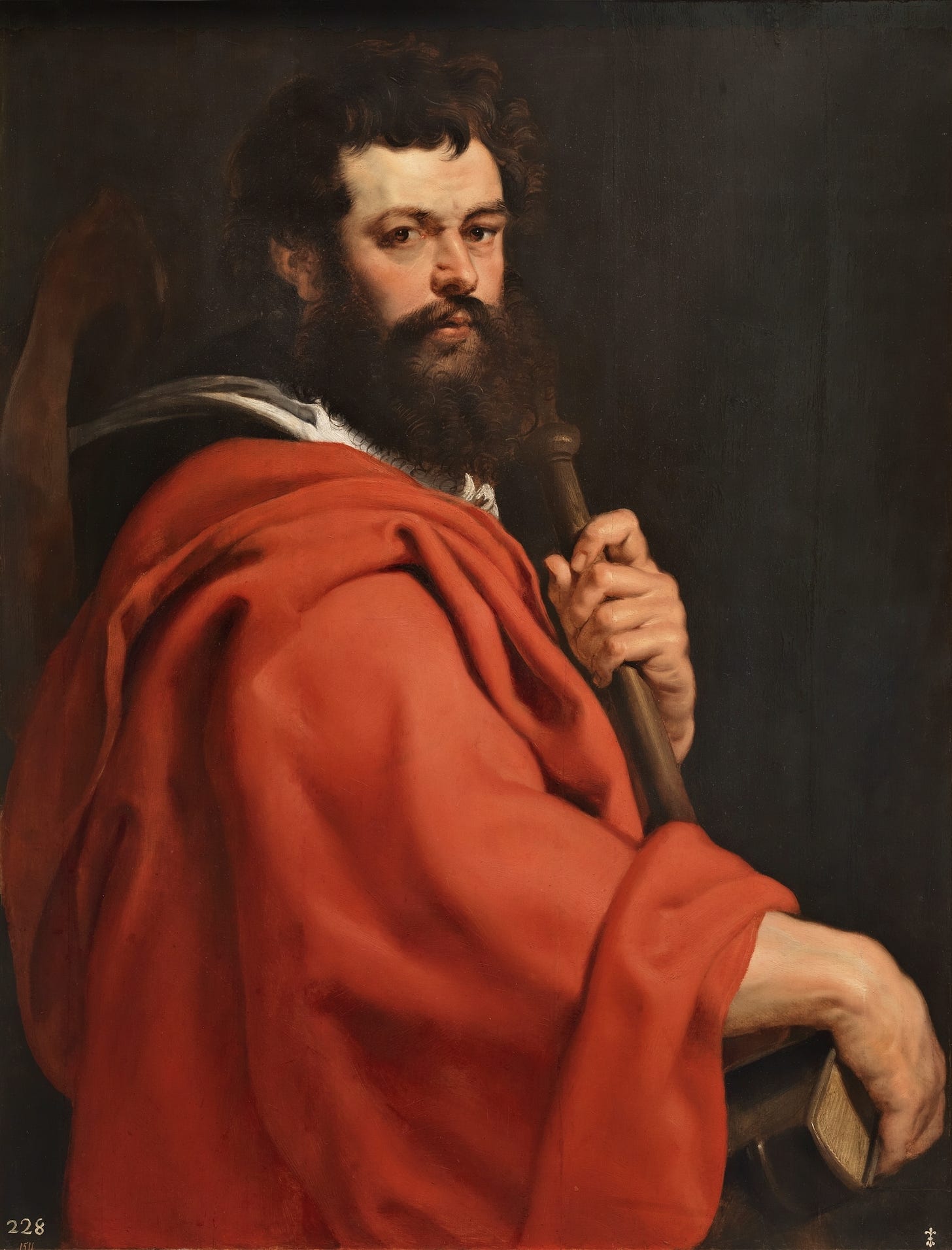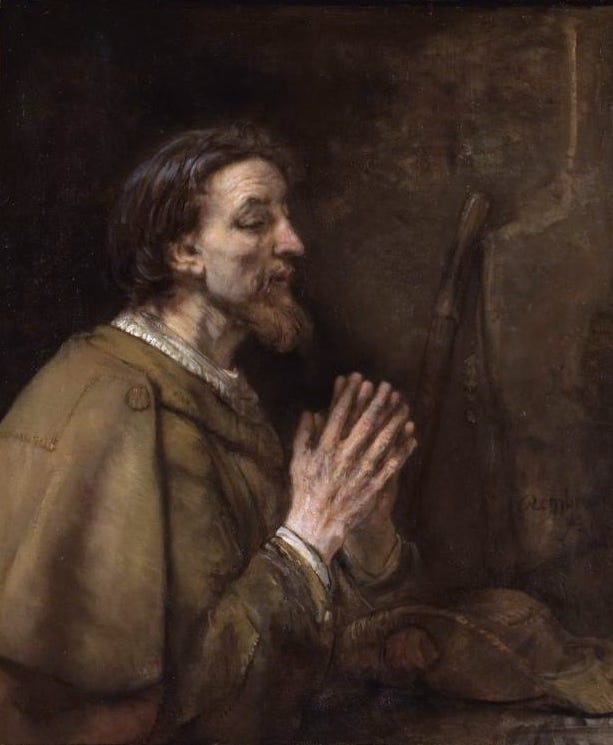Today is the Feast Day of James the Apostle
James the Great, also known as James, son of Zebedee, Saint James the Greater, or Saint James the Elder, was born in Bethsaida, Galilee, during the Roman Empire and martyred in AD 44 in Jerusalem.
Along with his brother John, James was a fisherman by trade before heeding Jesus's call to be a "fisher of men.” The brothers were close to Jesus, forming part of the inner circle of disciples and earning the designation "Boanerges," or "Sons of Thunder," for their intense zeal.
James was present at several pivotal moments in Jesus's life, including the Transfiguration, the Agony in the Garden, and the resurrection of Jairus's daughter. His devotion to Jesus led to his martyrdom, as he was beheaded by King Herod Agrippa.
According to tradition, his remains were transported to Spain, where they were interred at Santiago de Compostela. The exact timing and circumstances of this relocation are uncertain and shrouded in legend. What is clear, however, is that over the centuries, the shrine at Compostela became a significant pilgrimage destination. By the Middle Ages, it had become the foremost pilgrimage site in western Europe, with myriad pilgrim routes leading to it from various parts of Europe. The symbol of St. James, the scallop shell, evolved into a general emblem for pilgrims.
The extensive network of pilgrimage routes to Santiago de Compostela became an integral part of European cultural heritage. In 1987, these routes were recognized by the Council of Europe as historic cultural routes of international importance. Today, the Confraternity of St. James works to restore and upgrade the refuges along the route, which continues to be actively used by pilgrims.
Despite limited direct documentation of his life and teachings, James the Great's legacy continues to inspire ardent devotion, attested by the millions who have journeyed to his shrine in Spain and the many churches dedicated to him worldwide. He is recognized as the patron saint of Spain and various professions, including veterinarians, equestrians, furriers, tanners, pharmacists, oyster fishers, and woodcarvers.
From a homily on Matthew by Saint John Chrysostom, bishop
Sharers in the suffering of Christ
The sons of Zebedee press Christ: Promise that one may sit at your right side and the other at your left. What does he do? He wants to show them that it is not a spiritual gift for which they are asking, and that if they knew what their request involved, they would never dare make it. So he says: You do not know what you are asking, that is, what a great and splendid thing it is and how much beyond the reach even of the heavenly powers. Then he continues: Can you drink the cup which I must drink and be baptized with the baptism which I must undergo? He is saying: “You talk of sharing honors and rewards with me, but I must talk of struggle and toil. Now is not the time for rewards or the time for my glory to be revealed. Earthly life is the time for bloodshed, war and danger.”
Consider how by his manner of questioning he exhorts and draws them. He does not say: “Can you face being slaughtered? Can you shed your blood?” How does he put his question? Can you drink the cup? Then he makes it attractive by adding: which I must drink, so that the prospect of sharing it with him may make them more eager. He also calls his suffering a baptism, to show that it will effect a great cleansing of the entire world. The disciples answer him: We can! Fervor makes them answer promptly, though they really do not know what they are saying but still think they will receive what they ask for.
How does Christ reply? You will indeed drink my cup and be baptized with my baptism. He is really prophesying a great blessing for them, since he is telling them: “You will be found worthy of martyrdom; you will suffer what I suffer and end your life with a violent death, thus sharing all with me. But seats at my right and left are not mine to give; they belong to those for whom the Father has prepared them.” Thus, after lifting their minds to higher goals and preparing them to meet and overcome all that will make them desolate, he sets them straight on their request.
Then the other ten became angry at the two brothers. See how imperfect they all are: the two who tried to get ahead of the other ten, and the ten who were jealous of the two! But, as I said before, show them to me at a later date in their lives, and you will see that all these impulses and feelings have disappeared. Read how John, the very man who here asks for the first place, will always yield to Peter when it comes to preaching and performing miracles in the Acts of the Apostles. James, for his part, was not to live very much longer; for from the beginning he was inspired by great fervor and, setting aside all purely human goals, rose to such splendid heights that he straightway suffered martyrdom.
Collect
Almighty ever-living God, who consecrated the first fruits of your Apostles by the blood of Saint James, grant, we pray, that your Church may be strengthened by his confession of faith and constantly sustained by his protection.
Through our Lord Jesus Christ, your Son, who lives and reigns with you in the unity of the Holy Spirit, God, for ever and ever.




